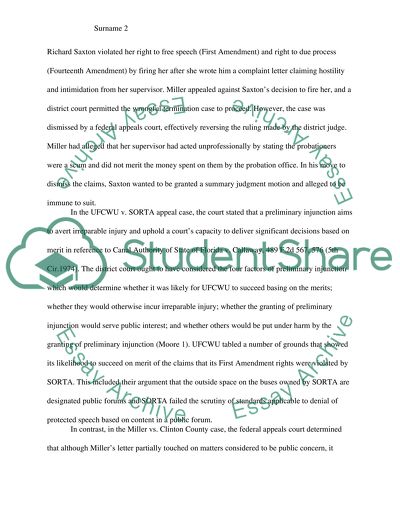Cite this document
(“United Food & Commercial Workers Union, Local 1099 v. Southwest Ohio Essay”, n.d.)
United Food & Commercial Workers Union, Local 1099 v. Southwest Ohio Essay. Retrieved from https://studentshare.org/journalism-communication/1623007-united-food-commercial-workers-union-local-1099-v-southwest-ohio-regional-transit-authority-163-f3d-341-rita-miller-v-clinton-county-544-f3d-542
United Food & Commercial Workers Union, Local 1099 v. Southwest Ohio Essay. Retrieved from https://studentshare.org/journalism-communication/1623007-united-food-commercial-workers-union-local-1099-v-southwest-ohio-regional-transit-authority-163-f3d-341-rita-miller-v-clinton-county-544-f3d-542
(United Food & Commercial Workers Union, Local 1099 V. Southwest Ohio Essay)
United Food & Commercial Workers Union, Local 1099 V. Southwest Ohio Essay. https://studentshare.org/journalism-communication/1623007-united-food-commercial-workers-union-local-1099-v-southwest-ohio-regional-transit-authority-163-f3d-341-rita-miller-v-clinton-county-544-f3d-542.
United Food & Commercial Workers Union, Local 1099 V. Southwest Ohio Essay. https://studentshare.org/journalism-communication/1623007-united-food-commercial-workers-union-local-1099-v-southwest-ohio-regional-transit-authority-163-f3d-341-rita-miller-v-clinton-county-544-f3d-542.
“United Food & Commercial Workers Union, Local 1099 V. Southwest Ohio Essay”, n.d. https://studentshare.org/journalism-communication/1623007-united-food-commercial-workers-union-local-1099-v-southwest-ohio-regional-transit-authority-163-f3d-341-rita-miller-v-clinton-county-544-f3d-542.


